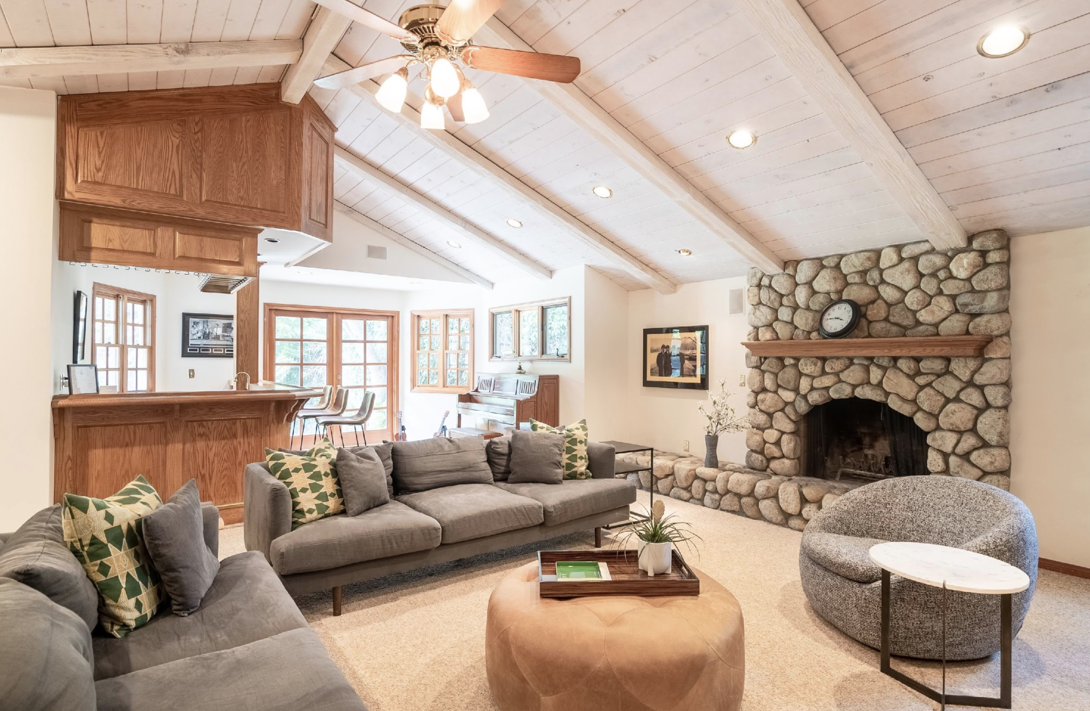Teen residential treatment for anxiety provides a structured environment where teens receive intensive therapy and support. It removes them from their daily stressors, allowing them to focus on recovery. With access to mental health professionals, personalized treatment plans, and peer support, teens can develop coping skills, improve their mental health, and build a foundation for long-term well-being.
Dealing with severe anxiety can be incredibly challenging for teens, affecting their daily lives and their long-term prospects.
Without proper teen anxiety treatment through residential treatment for teens, anxiety can lead to worsening mental health and academic struggles; teens with anxiety often struggle to achieve their full potential.
This article explores how residential treatment for anxiety helps teens.
What is Residential Treatment for Anxiety?
Residential treatment describes a form of inpatient treatment where individual residents receive care from professional staff within a residential setting. This includes psychiatric care, counseling, group therapy, as well as specialized mental health treatment modalities.
Residential treatment centers are often located outside of urban environments, in quieter neighborhoods closer to natural elements such as forests, beaches, or parks. A residential treatment program can help teens with anxiety spend time in a low-stimulation, comfortable, and homely environment while receiving professional care 24/7.
How Residential Treatment for Anxiety Helps Teens
Residential treatment provides teens with a safe and structured environment. Teens spend time away from daily stressors while living out a schedule that helps them focus on their wellbeing and avoid rumination.
With access to intensive therapy and round-the-clock support, teens can develop effective coping strategies and improve their overall mental health.
Here’s how residential treatment for anxiety helps teens:
Benefits of a Structured Environment
Anxiety can be exacerbated in uncertain and unpredictable environments. Teens may benefit from a stable and structured residential treatment program. While the first few days can be difficult to adjust to, teens can begin to thrive once they get develop their routine.
In addition to a clear boundaries and rules within a residential treatment program, residential treatment centers also provide consistent professional support and mental health treatment through a personalized schedule, so teens know what to expect, and can focus on improving their coping skills and enhancing their mental resilience to stressors through treatment and mental health exercises.
Individualized Treatment Plans
There are no cookie-cutter approaches to a mental health problem. An anxiety disorder is more than a textbook condition – an effective treatment method must take a teen’s whole person into account and address the myriad factors that might be affecting their anxiety in their day-to-day life.
Many anxiety disorders co-occur with other mental or physical health issues, which also need to be professionally addressed. Individualized treatment plans help medical professionals determine exactly what kind of medication and therapy might benefit a teen during treatment.
Comprehensive Therapy Options
Residential treatment facilities mimic a home environment, but they are often strategically located in environments or neighborhoods that can be conducive to promoting a calm and varied environment, where teens can regularly visit nature and partake in experiential therapy. Furthermore, residential treatment facilities focus on offering a long list of different treatment modalities, so teens can benefit from comprehensive therapeutic options.
Peer Support and Group Therapy
Mental health issues can be isolating, especially in school or even at home. When siblings or relatives misunderstand or mischaracterize anxiety as something else, it can alienate teens who struggle with it every day. At school, having more difficulties with certain stressors than other kids can result in feeling left out or singled out. For many teens, knowing they’re not alone – and meeting other kids who have had many of the same experiences dealing with anxiety in their everyday life – can be very impactful.
Residential treatment facilities house a group of teens, within a certain teen-to-staff ratio. Peer experiences can help lead to meaningful, and even lifelong friendships, and help teens reach out to others. Group therapy sessions help teens share their troubles and their successes, inspire one another, or view their own experiences through the lens of a different perspective.
Skill Building for Stress Management
Managing feelings of anxiety requires mental resilience and effective, individualized stress management. How you cope with stress effectively differs from person to person. While residential treatment facilities focus on therapeutic modalities and medication management, skill building is also important.
Improving a teen’s self-care repertoire can help them manage life stressors in ways they might not have been able to before treatment. This can include leveraging things like creative outlets, breathing exercises, physical activity, and mental or physical stimulation to distract from an anxious thought or calm the nerves during stressful moments.
Family Involvement and Support
Residential treatment facilities help teens temporarily isolate themselves from their normal lives. But that doesn’t mean family members can’t be involved in the treatment process. Many residential treatment facilities leverage family support and involvement through modalities like Family Systems Therapy to help tie family dynamics into a teen’s long-term mental health treatment.
How we interact with each other at home, discussing parent-teen and sibling relationships, and overcoming past family trauma or even intergenerational pain can help improve symptoms of anxiety.
Transitioning Back to Daily Life
Teen residential treatment for anxiety usually entails anywhere from a month to 60 days of intensive, individualized treatment. But long-term recovery from anxiety can take years; some people see it as a lifelong process.
Transitioning back from a treatment environment into everyday life can be challenging and represents an important step toward continuing to utilize the skills and lessons learned during treatment at home, in school, and in later life. Many residential treatment facilities help teens during this transition period by referring them to local resources, support groups, and experienced therapists and counselors in the area.
Residential Treatment for Teen Anxiety
Worried about your teen’s anxiety disrupting their life and well-being?
At Visions Treatment Centers in California, we offer specialized residential programs that provide intensive therapy and a supportive community designed to help provide teen anxiety treatment, support, and guidance for families.
Contact Visions Treatment Centers today and give your teen the professional care they need to overcome anxiety and thrive.
Conclusion
Teen residential treatment for anxiety offers a structured environment, intensive therapy, and essential support, helping teens develop effective coping strategies for long-term recovery.
By removing daily stressors, teens can focus entirely on their anxiety and build a foundation for later life through individualized treatment, a personalized schedule, and peer support. These benefits underscore the importance of considering residential treatment for teens struggling with symptoms of strong anxiety.








